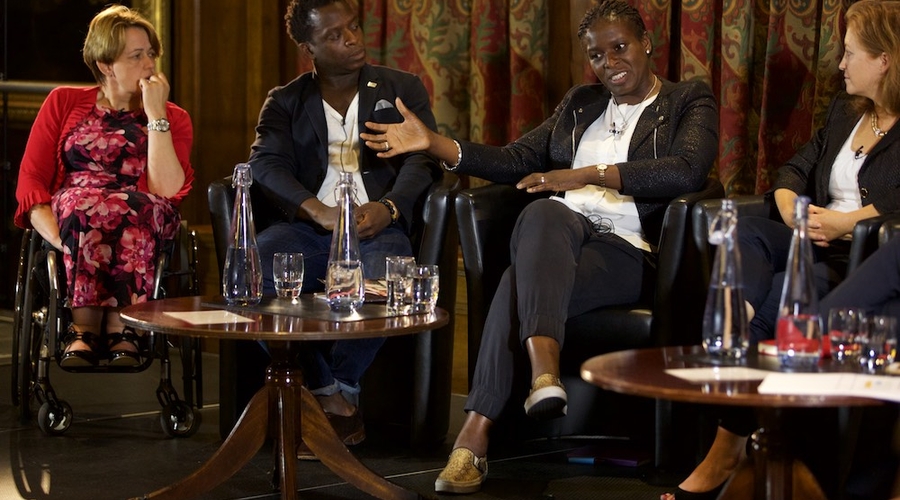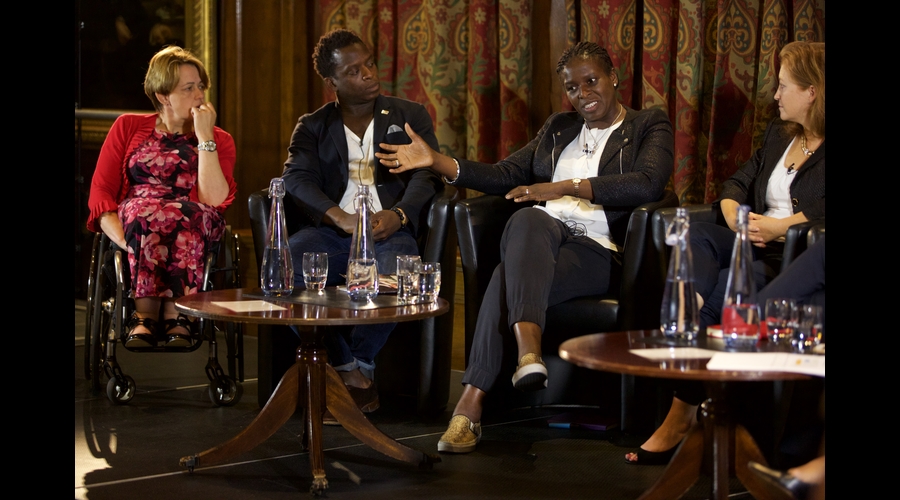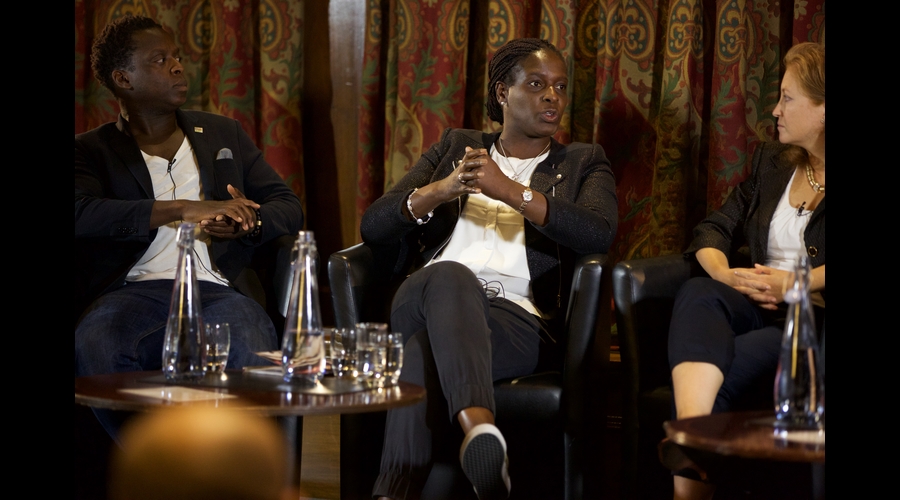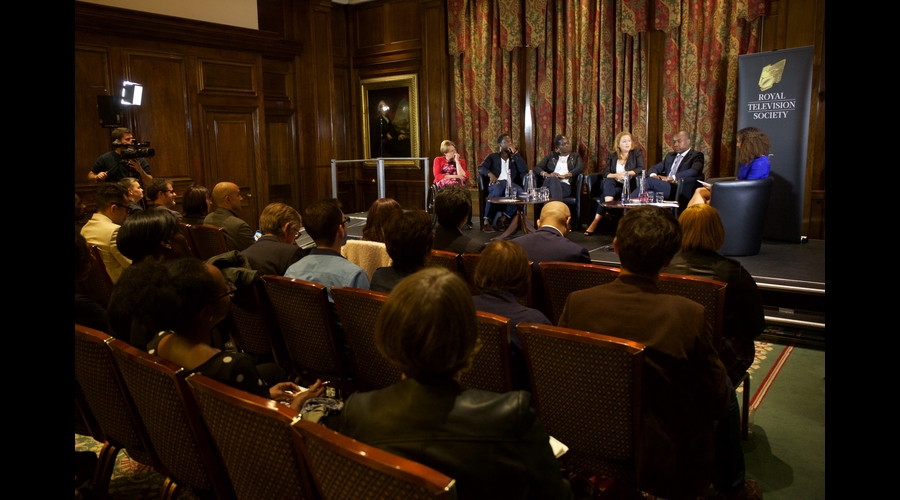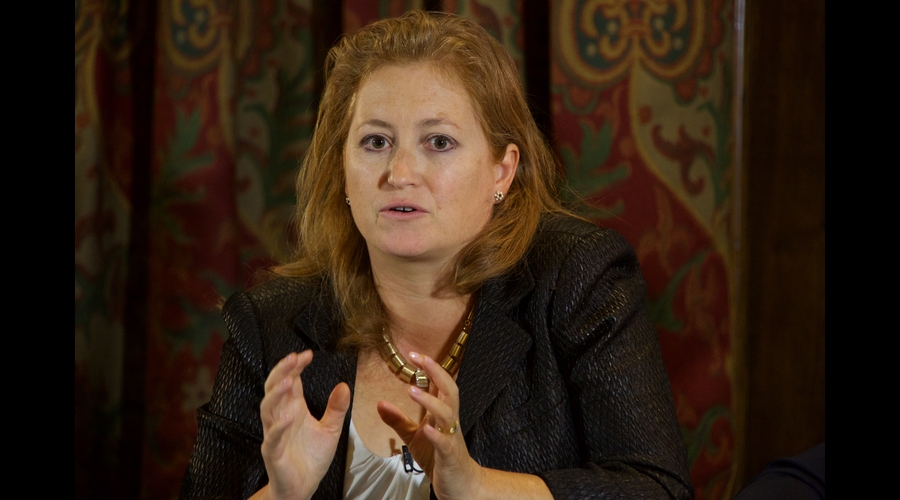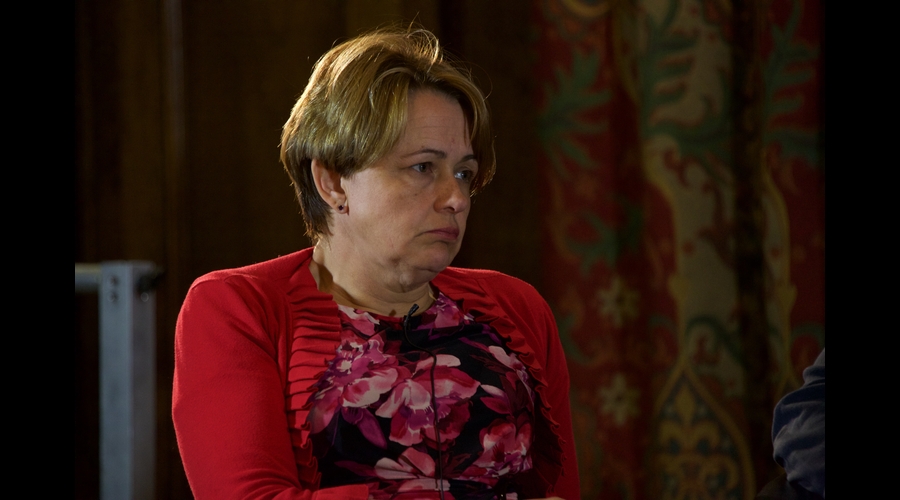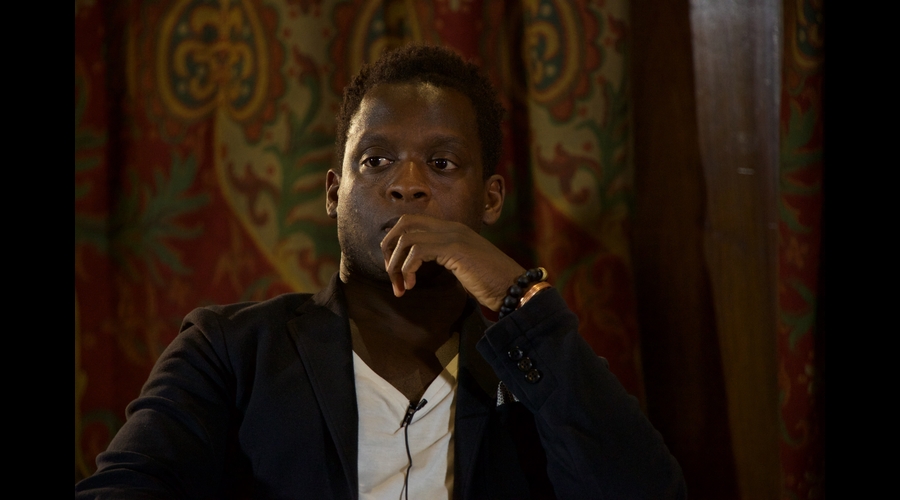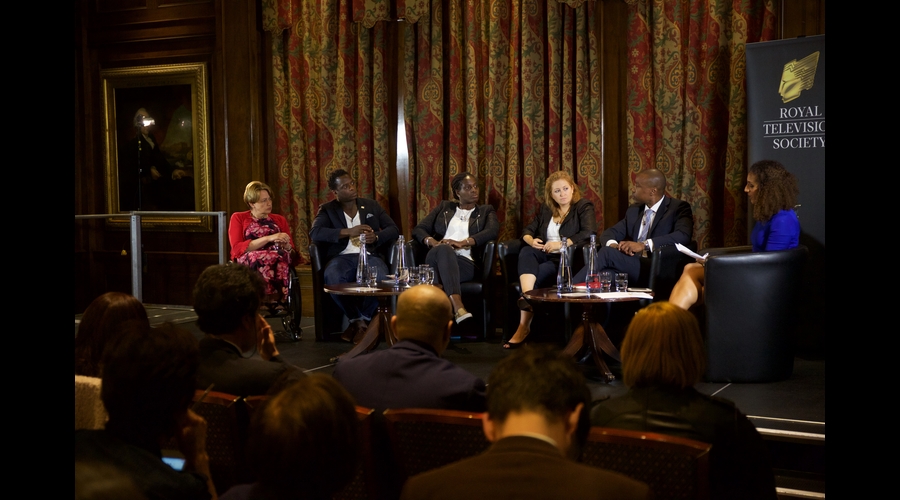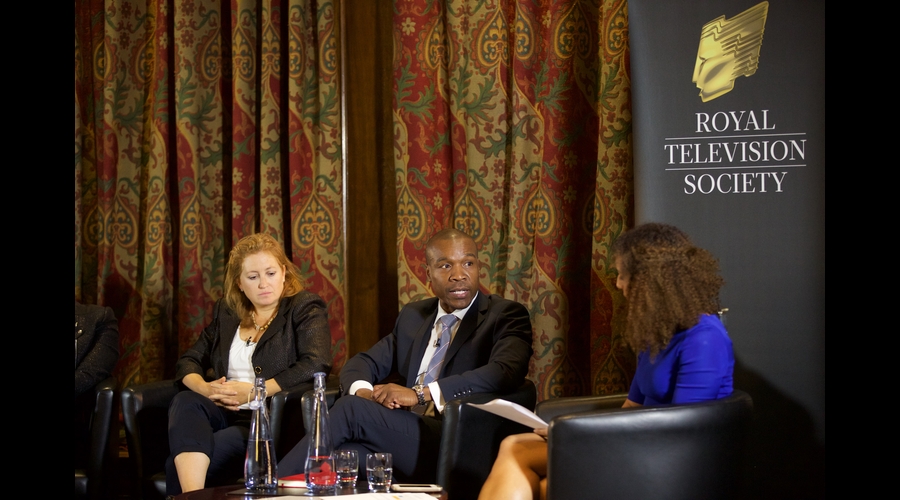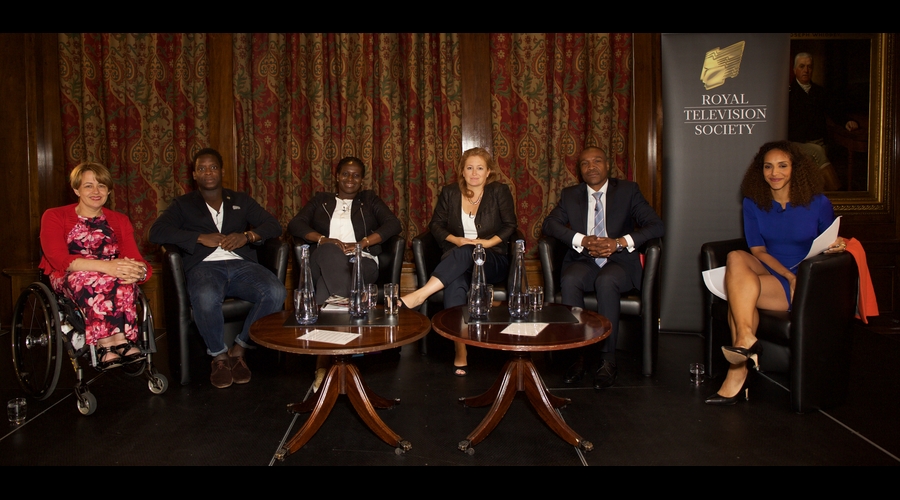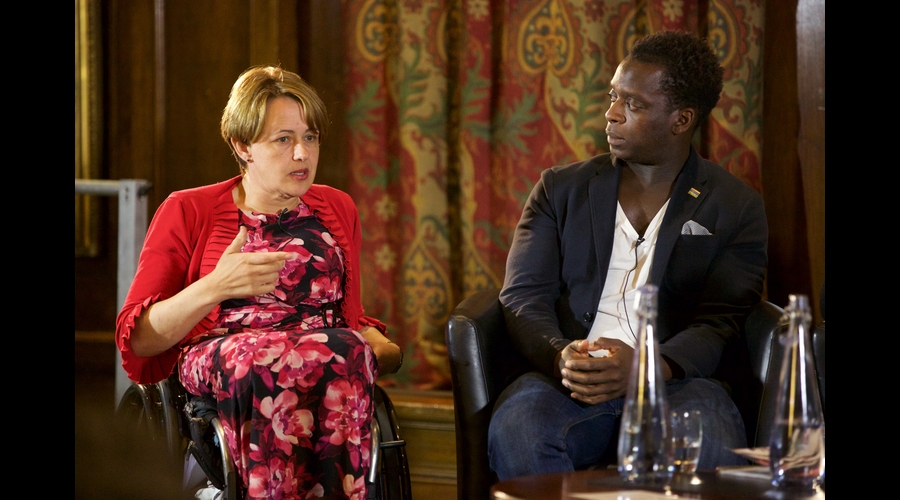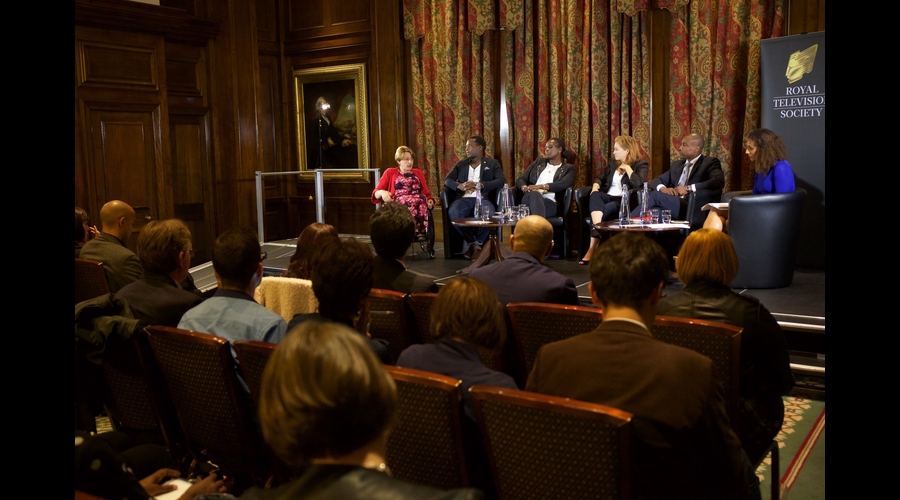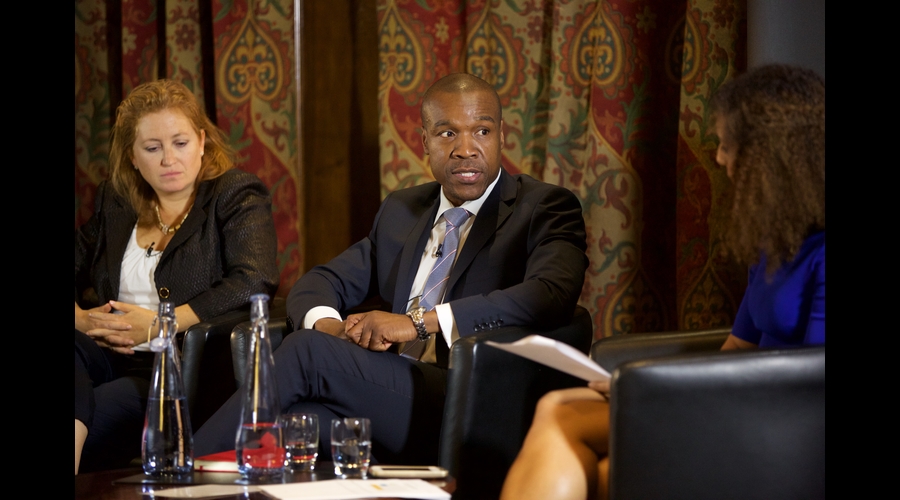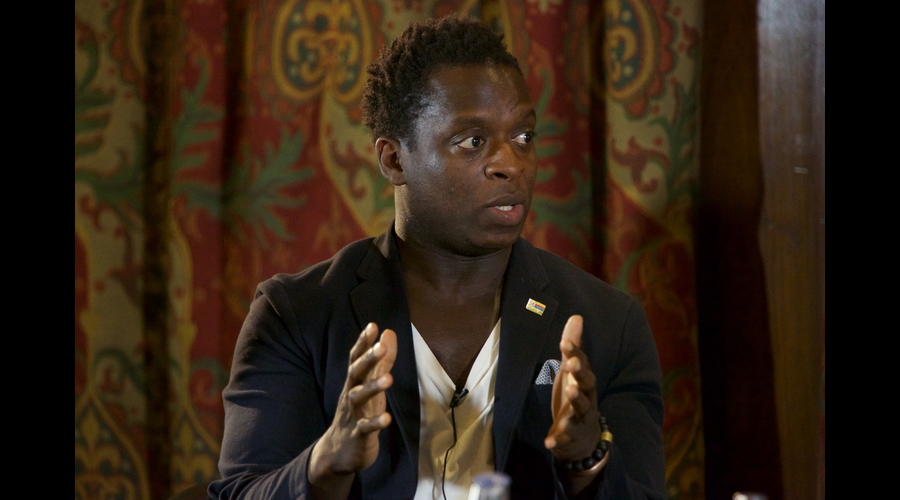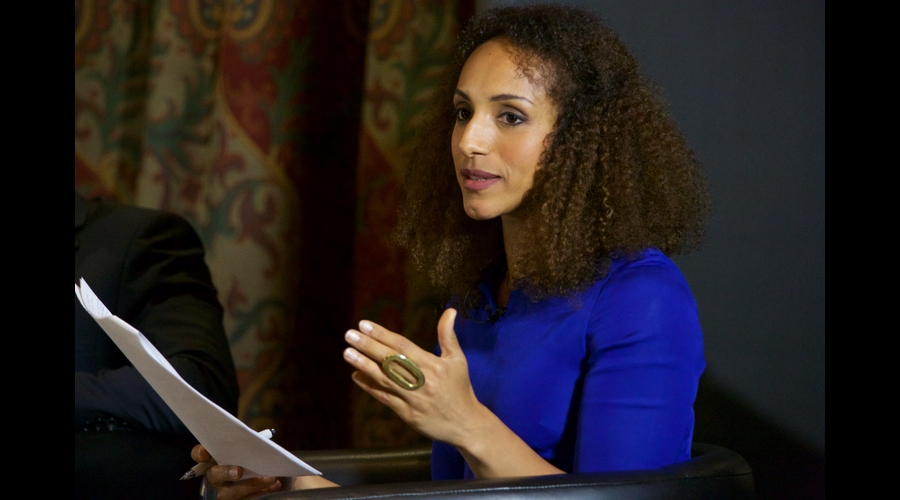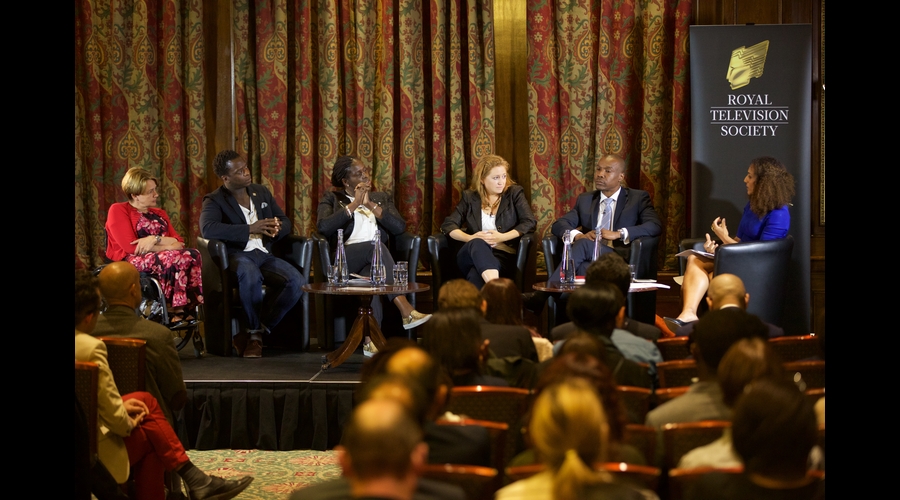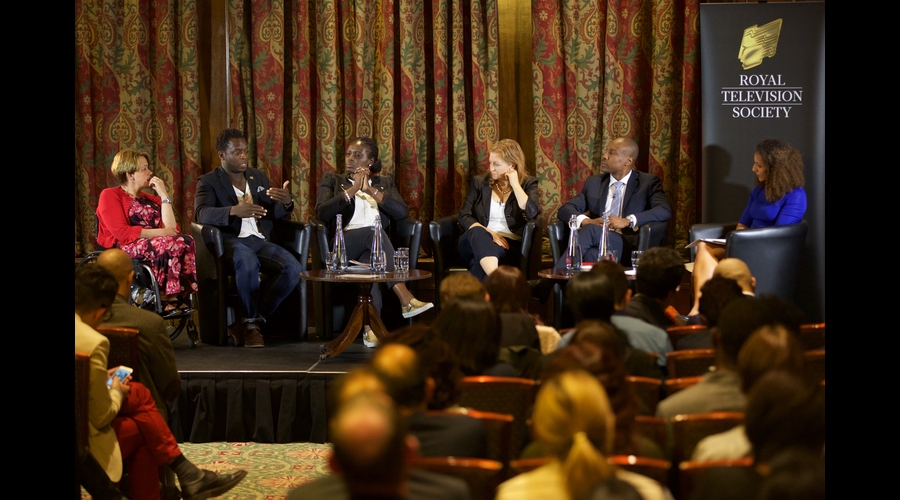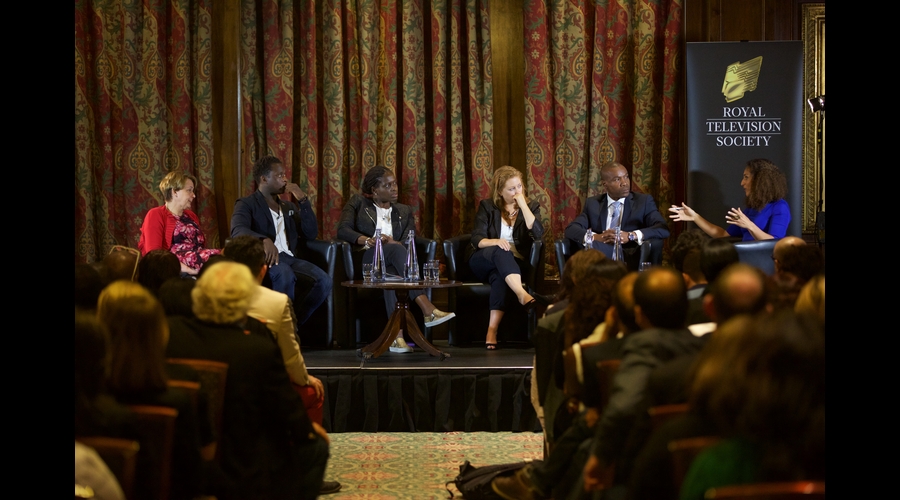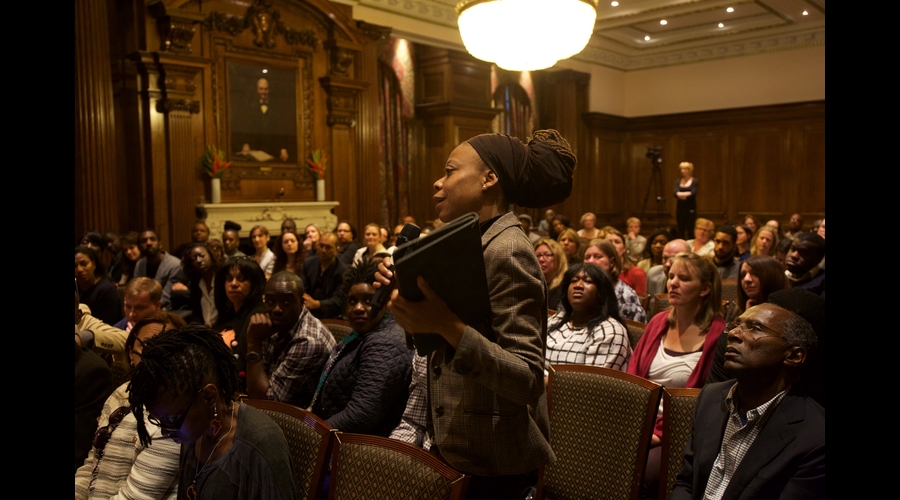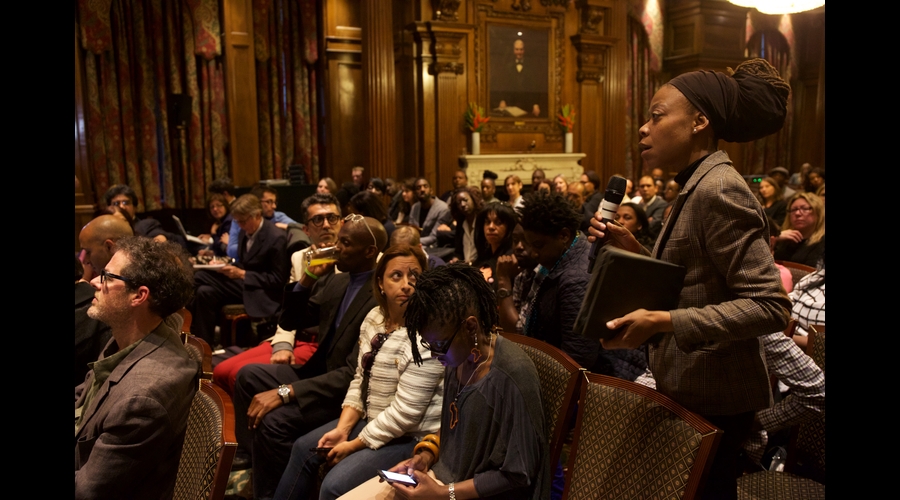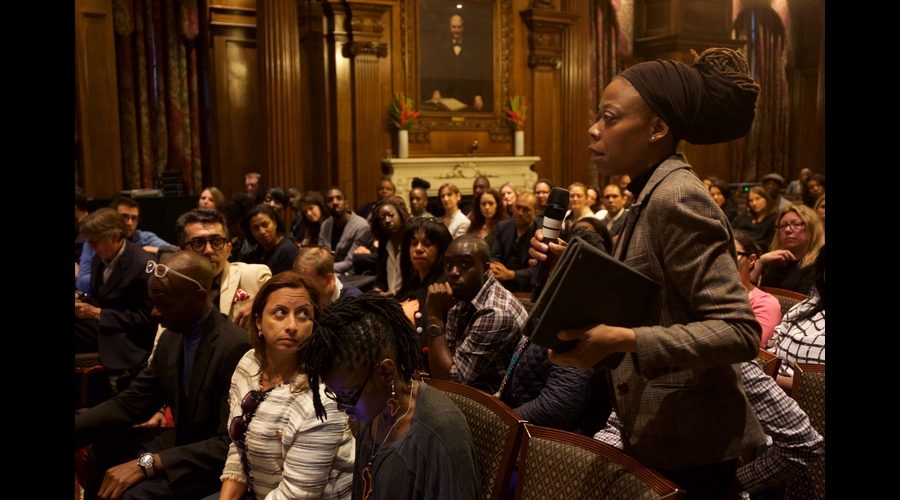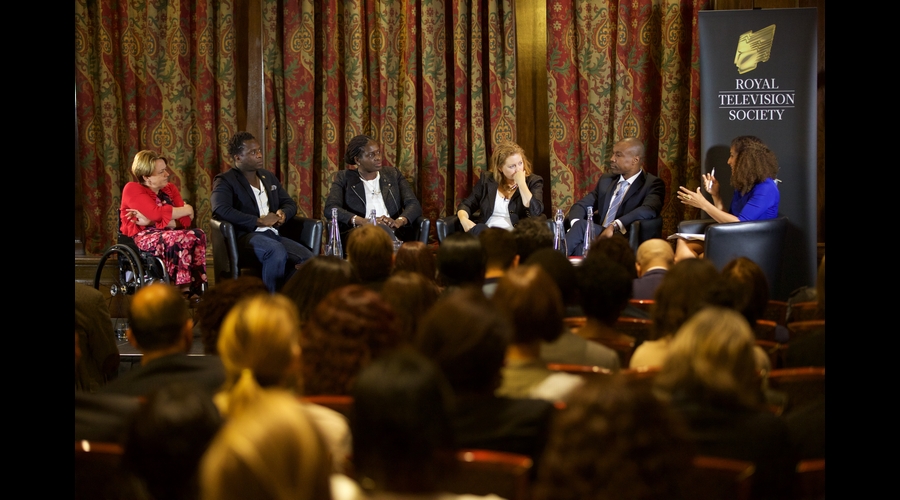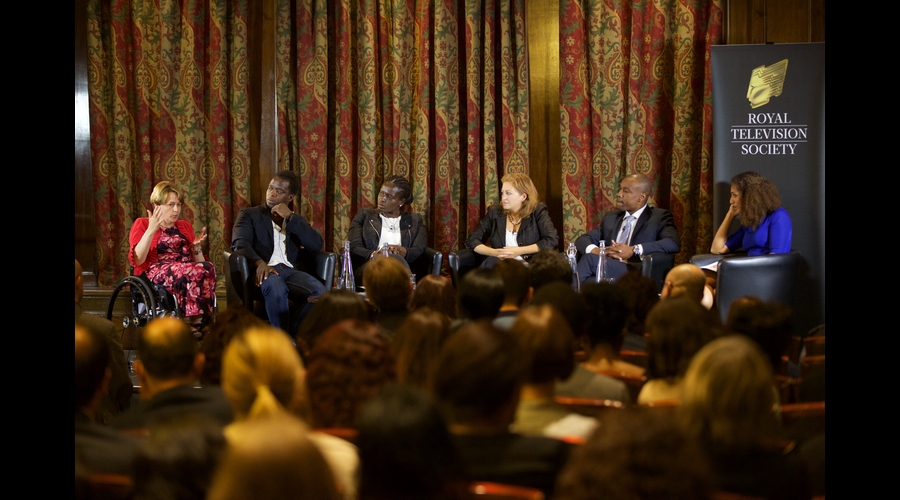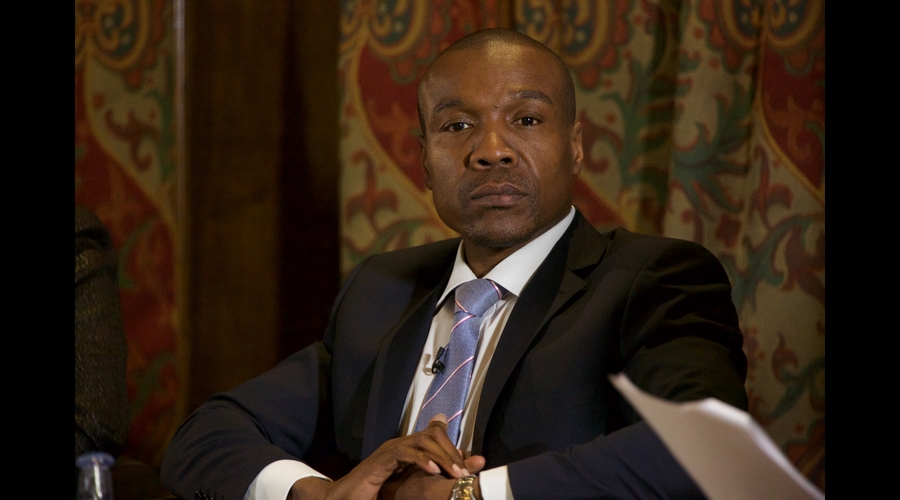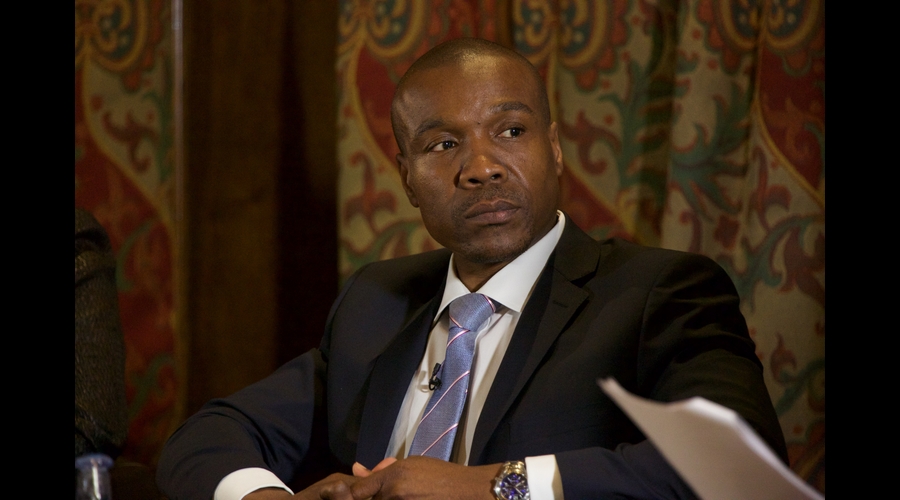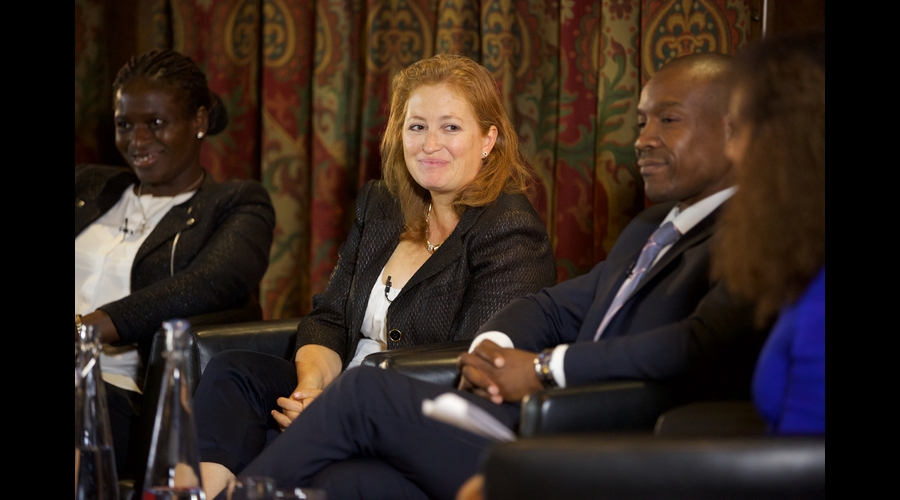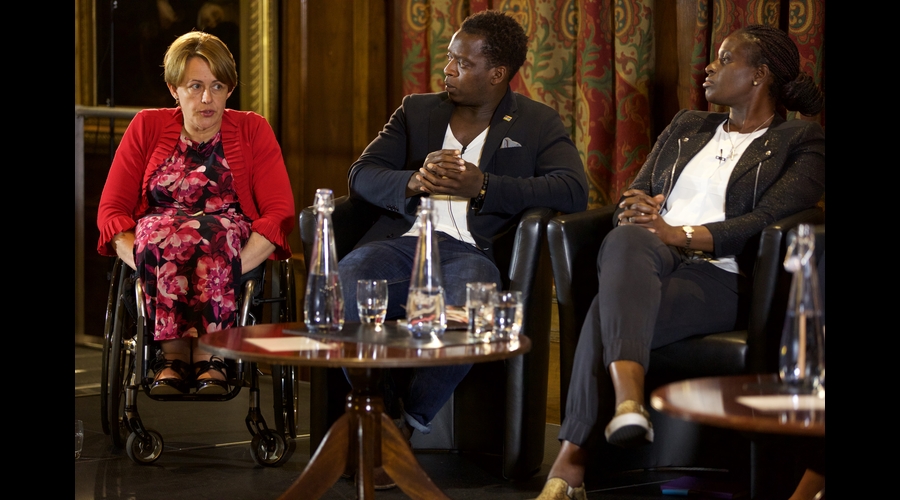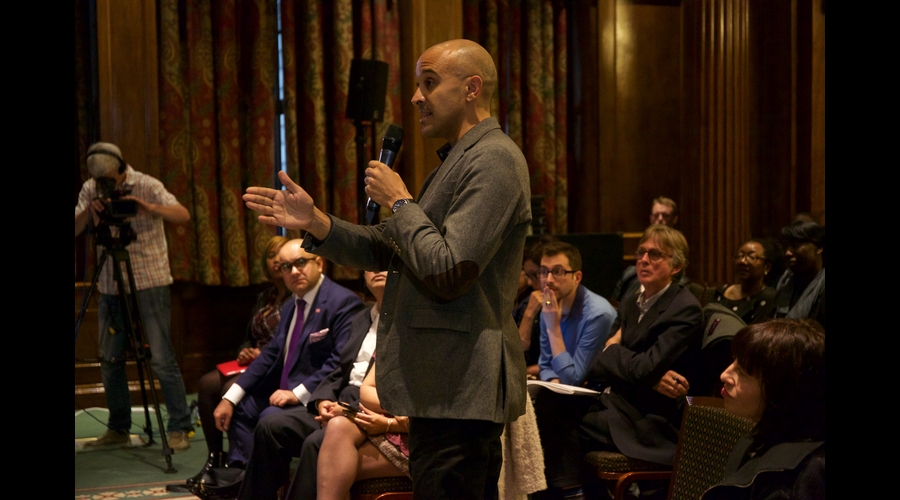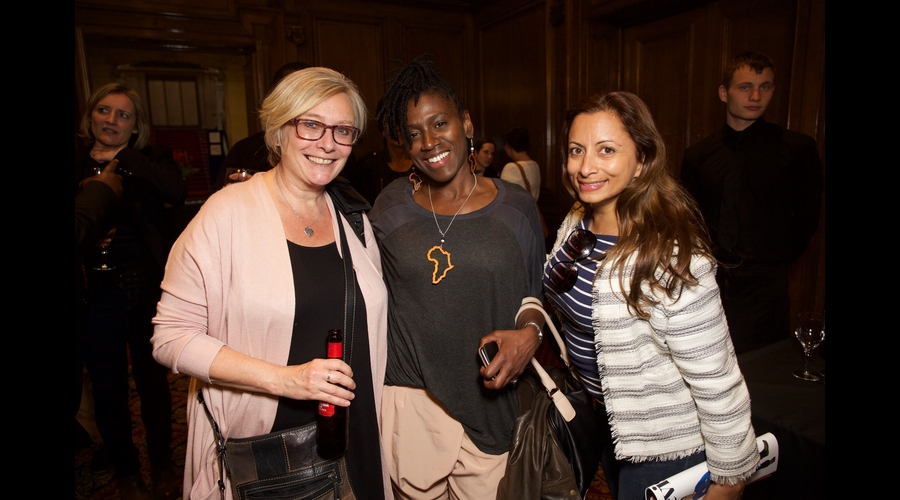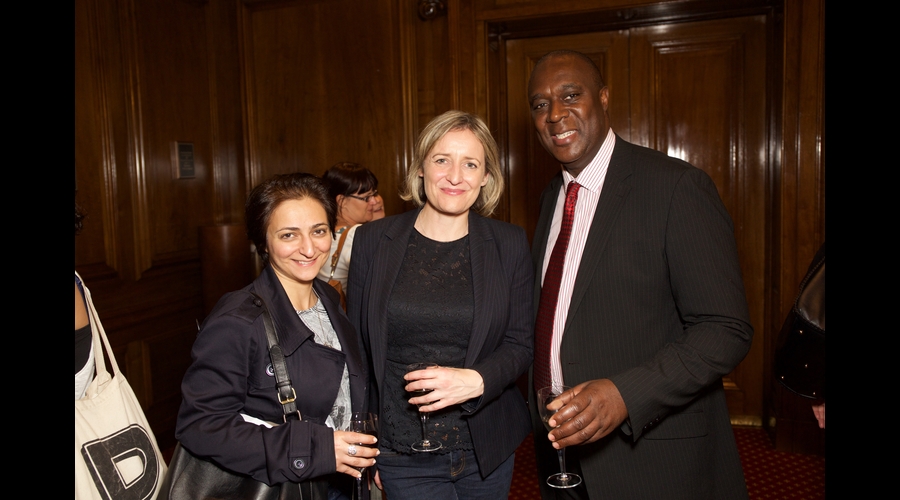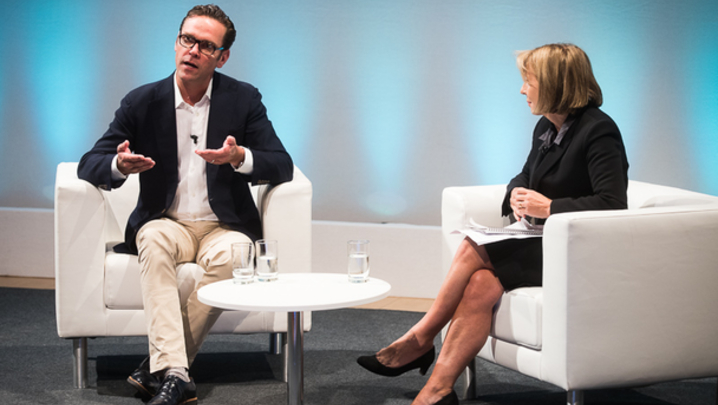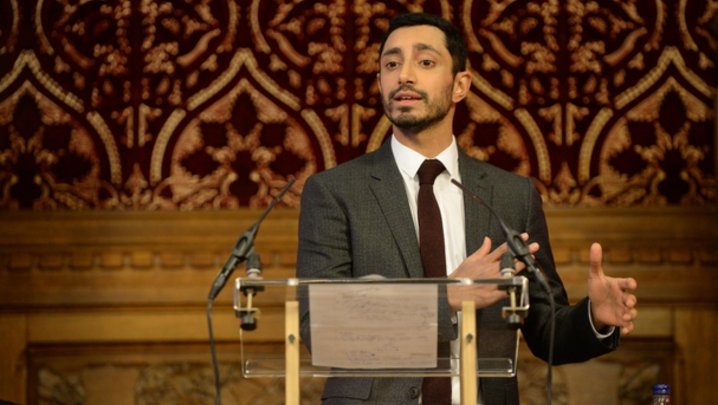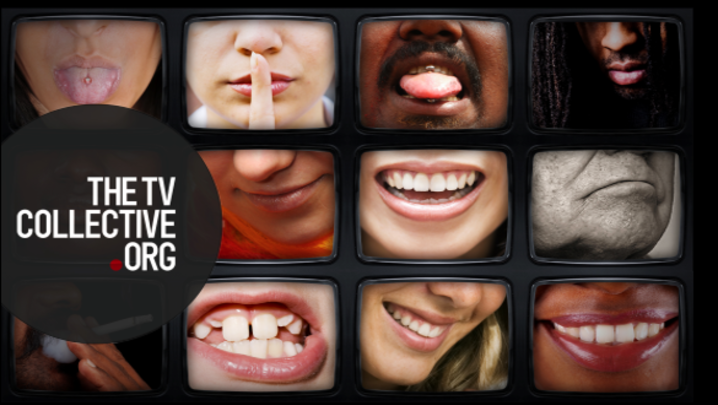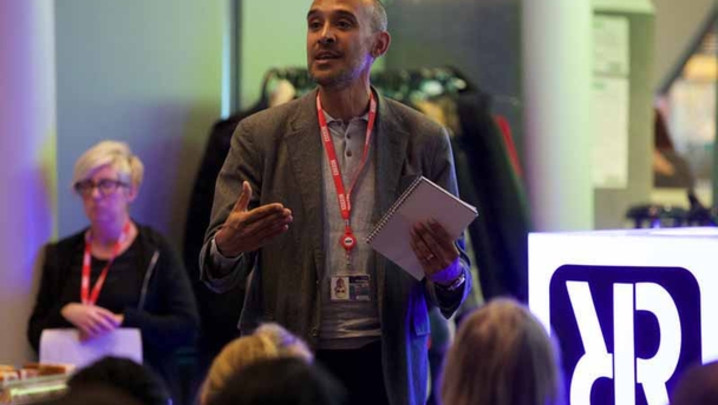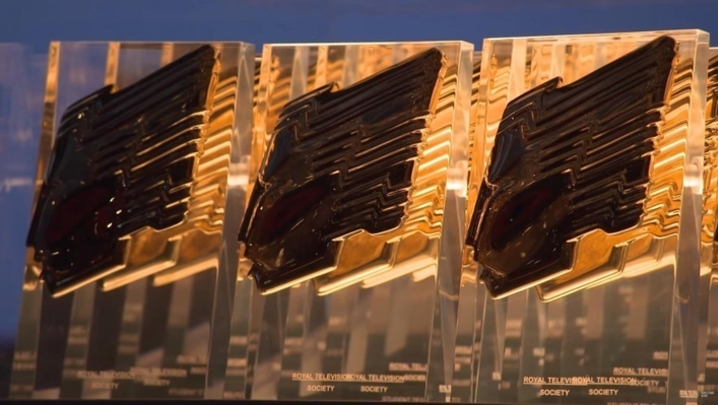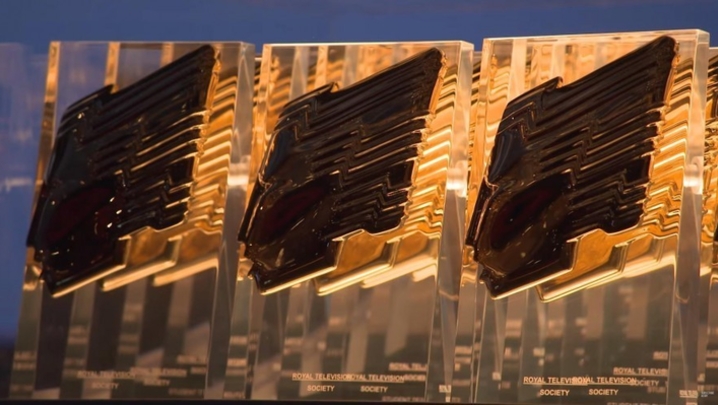Figures from across the industry gathered for an RTS event discussing whether broadcasters have done enough to encourage diversity
The extent of British broadcasters' new found commitment to diversity came under the spotlight at a packed RTS event provocatively entitled Diversity: Job Done?
A year ago the BBC Director-General Tony Hall unveiled plans for on and off screen BAME representation at the BBC and the setting up of new Independent Diversity Advisory Group.
Paralympian Baroness Tanni Grey-Thompson, a member of the group who became disabled as a child, said there had been change at the BBC in how minorities are portrayed but more work needed to be done.
She said: "There has been a really interesting dialogue...A lot of my experience from 2012 [London Paralympic Games] in terms of how you can affect positive change really quickly was quite important...
"I'm slightly bored of people saying 'Let's increase numbers in 20 years' time and write another consultation'...
"In 2012 we were able to say 'This is not good enough..."
Added Grey-Thompson: "We need to do things much quicker than we have done in the past and the BBC should be leading the way.
"If the BBC is not doing it, it gives every other organisation an excuse not to do it as well."
Discrimination against minorities was still widespread. "If you don't see disabled people on screen in all walks of life it is never going to change.
"I got disabled at seven, I am 45 now. Disabled people were locked away from society in care homes. They weren't allowed out...
"It has got immeasurably better but it is not as good as it needs to be."
As part of Hall's initiative the BBC has set up a £2.1m fund to help BAME talent, on and off screen, develop new programmes.
At the RTS event Tunde Ogungbesan, Head of Diversity Inclusion and Succession, BBC, was asked if the money was an annual commitment.
He said he understood it was and that accessing it "was the same as for any other commission."
Chair Afua Hirsch, Social Affairs and Education Editor, Sky News, pointed out the sum was tiny and amounted to 0.1% of the licence fee.
Would he like to see it increased? "From what I understand it is not the only amount of money that relates to diversity," replied Ogungbesan.
"It is not only £2.1 million, it is actually a lot more than that."
Pressed on how much other money was available to back diversity in programme budgets the executive who joined the BBC from Shell earlier this month, was unable to provide an answer.
Channel 4 announced its 360° Diversity Charter in January.
Ade Rawcliffe, the broadcaster's Creative Diversity Manager, told the audience the initiative was "a game changer."
She said: "It's changed how we work at Channel 4...Every production has to go through a tick box process on and off screen for diversity.
"It means that diversity is the first conversation that people have...What's been a pleasant surprise for us is how the independent sector has embraced it.
"The 360° Diversity Charter has changed the way we work at Channel 4... Diversity is the first conversation that people have"
"They've been really keen to do it. In the past people have felt really passionate about diversity but haven't had clear guidance about what to do. We now have clear guidelines."
Sky's head of comedy, Lucy Lumsden, was equally upbeat over Sky's diversity program.
This aims to have at least 20% of the stars and writers of its UK-originated shows from a black, Asian or other minority ethnic background by the end of the year.
She said: "Diversity is very much on our watch to make a difference and make it happen.
"Stuart [Murphy, Sky's director of entertainment channels] didn't take long to come up with these [quotas]. It is part of the passion and pioneering spirit of Stuart and Sky."
Sky aimed to make its diversity package – which also covers those working behind the screen - as clear as possible.
"We've all signed up to it," added Lumsden. "All our commissioners have. We don't have a head of diversity. Sky owns this...
"I've been in the industry for 20 years [Lumsden was formerly at the BBC]. There has been such a change in the conversation this year...
"Producers bring up the subject before we have to guilt them into it...The fabric of the conversation has shifted."
Actor Kobna Holdbrook-Smith, who campaigns for Act for Change set up in 2014, however, presented a more nuanced picture.
"What we're scared of is this idea of deletion. When you imagine the world, this drama that you've created, you seek to snip out parts of the real world," he said.
"What I've heard in the year and a half that we've been working is very exciting, but what I've also heard is many people say they've been here before, time and time again.
"That's a worry. We can't do anything until we've seen more results.
"What I want to see next are mechanisms for transparency. We need to monitor ourselves and not just be told what is happening.
"We need to have the ability to go online and see it for ourselves."
Diversity: Job Done? was an RTS early evening event held at One George Street, Westminster, London, June 22.
The producer was Angela Ferreira, a consultant at Joy Media. A full report of the event will be published in the July edition of Television.

